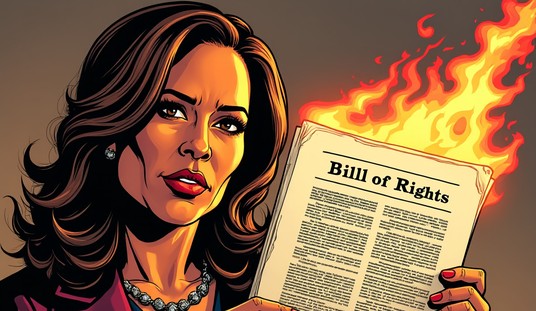Nice wrap-up here by veteran reporter Carl Cannon on all the ways Rolling Stone failed the basic tenets of journalism in the University of Virginia “rape” story. So many red flags flew by the editors in their haste to contribute to the Narrative that common practices seemed to have gone right out the window. As I wrote on Twitter, if your controversial single-sourced story’s single source asks to be taken out of the story, you have no story. If you haven’t gotten the other side, you have no story. If the details keep changing, you have no story. This doesn’t mean that the story is or is not true; it just means that you can’t print it.
–The magazine didn’t attempt to interview the men they accused of rape because of an agreement with Jackie.
–They neglected to corroborate Jackie’s recollections with her three erstwhile “friends.”
–They didn’t reveal that the version she gave them is materially different from the one she provided the university.
But wait — there’s more:
Even before the Rolling Stone piece unraveled Friday in the face of contrary facts unearthed by the Post and the fraternity’s lawyers—the frat didn’t even host a party on the date in question—so much was wrong with this approach that it’s hard to know where to start. But let’s try.
First, as I tell young reporters, if your byline is on that story it’s your story, not your source’s. Second, you don’t use a hunch to assess a source’s credibility; you check out their story. Third, libel law aside, it’s not old-fashioned to ask a person you’ve accused of a serious felony for their side of the story; it’s an essential exercise in ascertaining the truth.
Let me just add to that: skepticism — about everything, including your mother — is one of the most important qualities a journalist can possess. It will save you a lot of heartache and trouble down the road.
Here’s what puzzles me the most about Rolling Stone‘s failure: the seriousness of the charge. According to the magazine, this was a brutal , violent gang rape that went on for hours, on the campus of a prestigious American university. Was there no police report? If not, why not? Were the pages of the magazine the best place to raise these charges? A good editor would have halted the reportage right there until he got damn good answers. Wanting to believe is no substitute for actually believing. As the old Hollywood saying goes, if you want to send a message, call Western Union.
Journalism long ago sold its soul for “access” and devoted its dwindling resources to agenda-driven stories that seem to fit into a pattern of events that says something larger about the state of American culture. Stories like this only further damage the profession. Cannon concludes:
If my daughter or any of her friends were harmed in the way Rolling Stone described, I’d have wanted to drive to her college and take the fraternity house apart brick by brick. The problem is, that kind of destruction is already happening to journalism—and the vandals come from our own ranks.
Sow the wind, reap the whirlwind. Cannon quotes the wise words of Joseph Pulitzer, now apparently forgotten:
“…fight for progress and reform, never tolerate injustice or corruption, always fight demagogues of all parties, never belong to any party, always oppose privileged classes and public plunderers, never lack sympathy with the poor, always remain devoted to the public welfare…”
We’ve come a long way, baby.










Join the conversation as a VIP Member